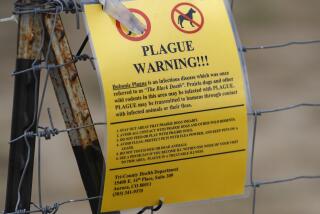Allergy symptoms can be confused with chronic sinusitis
“It’s just my allergies.” “Oh, it’s the pollen.” “Allergy season again…”
The refrains are common. And they might be wrong. What many people think of as allergies might be sinusitis, an inflammation of the sinuses, according to the Asthma and Allergy Foundation of America.
Many respondents to an online poll acknowledged that they assume their headaches and bouts of sneezing to be caused by allergies -- and that they often boldly attempt to self-treat their symptoms rather than consult a primary care physician or specialist.
Here’s the full report and the news release accompanying it, ominously titled: “Playing Doctor and Paying a Price.”
Interpreting such a limited survey can be tricky. Participants were 621 people who responded to an email from the Asthma and Allergy Foundation of America. Here are a few of the sample findings:
“According to respondents of the survey, nearly nine in ten (85%) patients who have misdiagnosed themselves were suffering from sinusitis when they thought it was a different condition. In fact, more than half (51%) of those with an inaccurate self-diagnosis thought that they had allergies when they were actually suffering from a sinus infection.
“Perhaps so many are incorrectly assessing themselves because more than one-third (39%) think it’s difficult to differentiate between symptoms of cold and flu, allergies and sinusitis.”
In any case, the confusion is understandable. Here are a few pointers.
Sinusitis is simply an infection or inflammation of the sinuses. Medline Plus says this: “Symptoms of sinusitis can include fever, weakness, fatigue, cough and congestion. There may also be mucus drainage in the back of the throat, called postnasal drip. Treatments include antibiotics, decongestants and pain relievers. Using heat pads on the inflamed area, saline nasal sprays and vaporizers can also help.”
Many more details and resources can be found via that link. And this PubMed Health article explains the difference between acute, sub-acute and chronic sinusitis.
Antibiotics can help if the blockage is caused by a bacterial infection, but nasal sprays and decongestants can help clear nasal passages, according to MayoClinic.com.
As for allergies, those are a reaction of the immune system. “Allergies can cause a runny nose, sneezing, itching, rashes, swelling or asthma. Symptoms vary,” says Medline Plus.
Many types of medications, including nasal sprays and pills, can relieve symptoms (the FDA has a list of approved ones).
The symptoms may sound similar, but as AAFA vice president of external affairs, Mike Tringale, advised in the aforementioned news release:
“If you have allergy-like symptoms that last longer than 12 weeks or symptoms that occur more than three times per year, with symptoms usually lasting more than 20 days despite treatment attempts, you may have chronic sinusitis and should see your doctor for a correct diagnosis and the right medical solution.”
Maybe you’ll get a chance to respond to a survey.
healthkey@tribune.com
RELATED: More news from HealthKey
More to Read
Sign up for our L.A. Times Plants newsletter
At the start of each month, get a roundup of upcoming plant-related activities and events in Southern California, along with links to tips and articles you may have missed.
You may occasionally receive promotional content from the Los Angeles Times.






